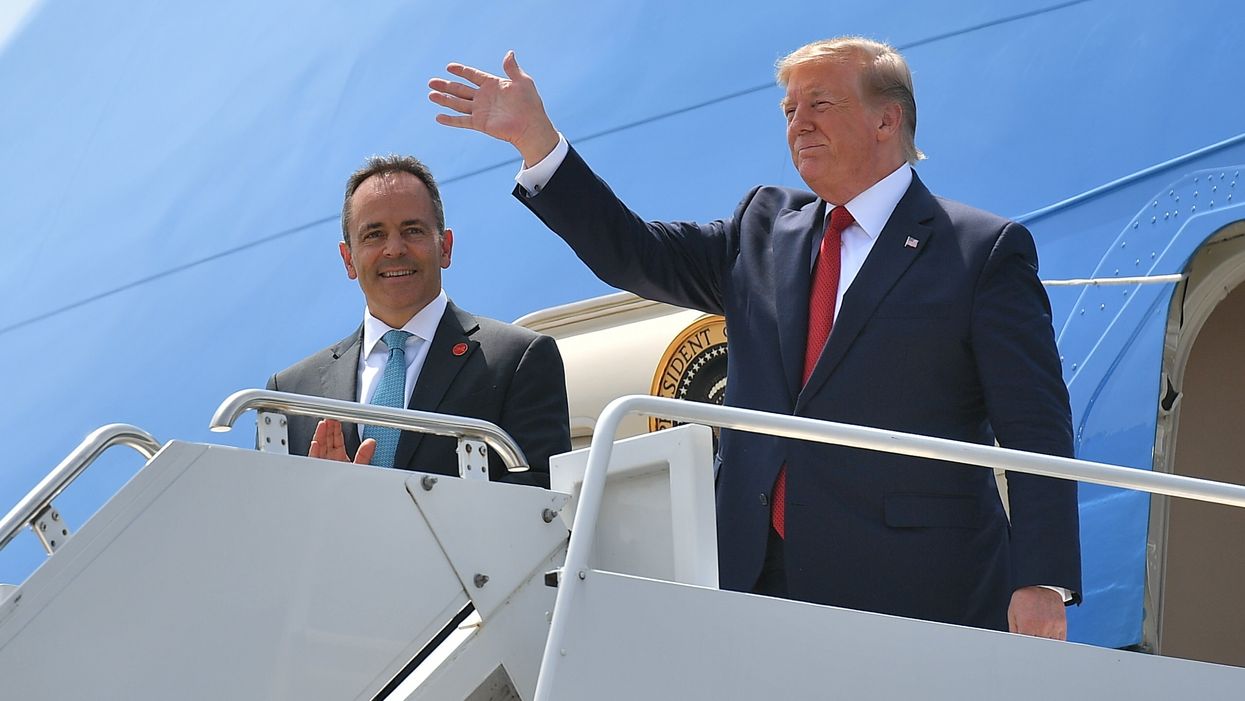
Photo by MANDEL NGAN/AFP/Getty Images

There is an open question whether such action would violate the 14th Amendment
President Donald Trump announced on Wednesday that he will take a serious look at ending birthright citizenship.
Trump said he would consider initiating an executive order to end the practice — but there is an open question whether such action would violate the 14th Amendment and/or the Immigration and Nationality Act.
The 14th Amendment, which was instituted after the U.S. Civil War, ensured that black Americans retain full citizenship rights. The amendment also grants citizenship to "all persons born or naturalized in the United States."
Following the Supreme Court's decision in United States v. Wong Kim Ark, most lower courts have generally accepted the premise that the 14th Amendment confers birthright citizenship upon anyone born in the United States; however, some immigration hardliners have argued that Wong Kim Ark may be distinguished on the basis that the parents in Wong Kim Ark were a) not illegal immigrants and b) had a permanent domicil in the United States.
However, a more significant hurdle for the Trump administration may be that the Immigration and Nationality Act of 1952 automatically conferred birthright citizenship upon anyone born in the United States (or the territories of the Virgin Islands, Puerto Rico, and Guam) by act of Congress.
Trump told reporters that his administration is looking "very seriously" at ending birthright citizenship.
"Birthright citizenship, where you have a baby on our land — walk over the border, have a baby, congratulations, the baby's now a U.S. citizen," he said. "We are looking at birthright citizenship very seriously. It's, frankly, ridiculous."
This isn't the first time Trump has invoked the idea of ending birthright citizenship — he also broached the topic during the 2016 presidential election. In 2018, he said he would sign off on an executive order to push through the change.
"It was always told to me that you needed a constitutional amendment. Guess what? You don't," Trump said during a 2018 interview with Axios.
At the time, he added, "You can definitely do it with an act of Congress. But now they're saying I can do it just with an executive order.
"We're the only country in the world where a person comes in and has a baby, and the baby is essentially a citizen of the United States ... with all of those benefits," he added.
A variety of nations in South and Central America, however, as well as Canada, grant citizenship to anyone born inside the country.
Most constitutional experts have said that the president would run afoul of the U.S. Constitution, or the Immigration and Nationality Act, if he were to sign an executive order to end birthright citizenship.
Trump immigration executive order: President wants to terminate birthright citizenshipwww.youtube.com